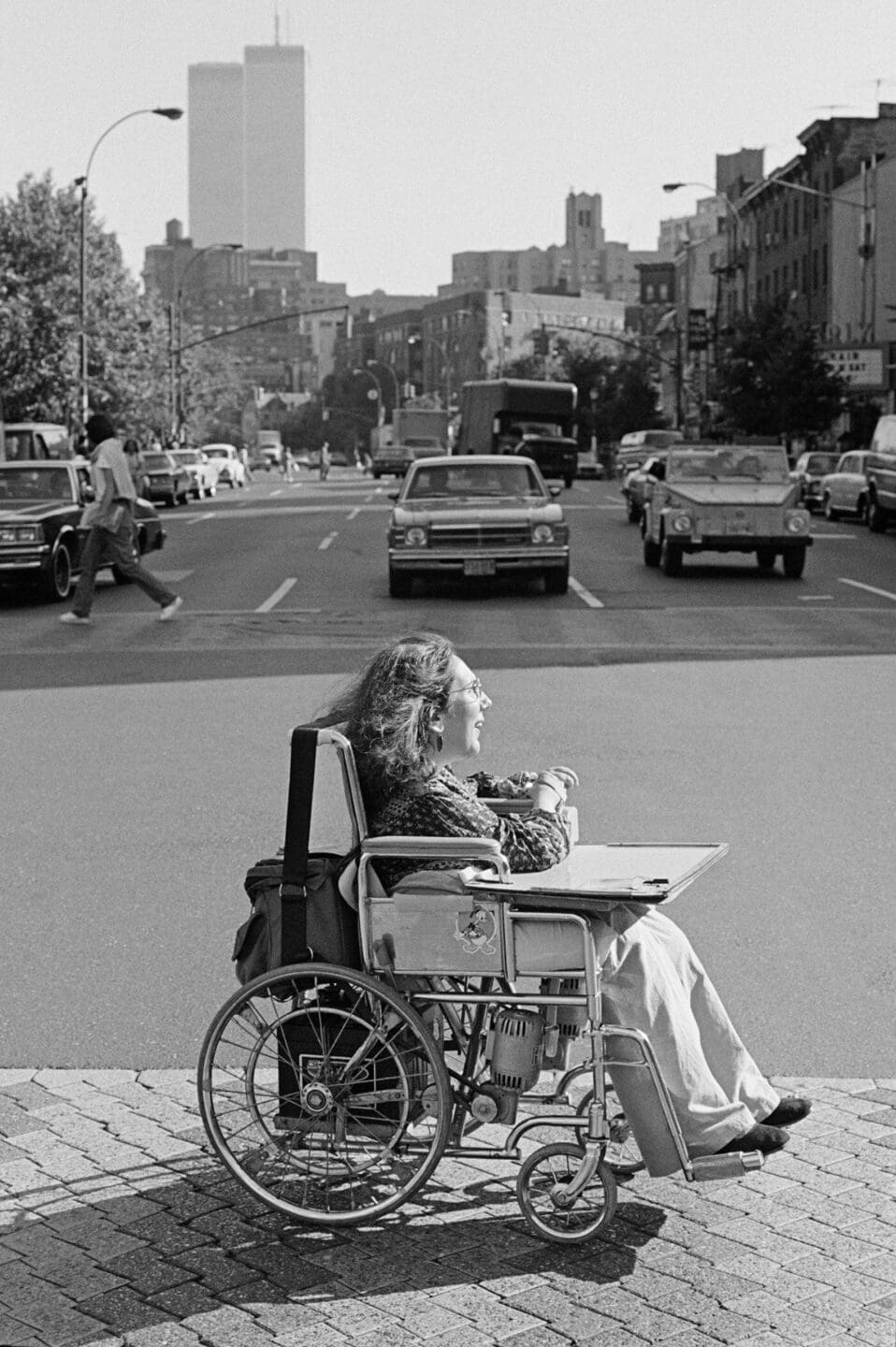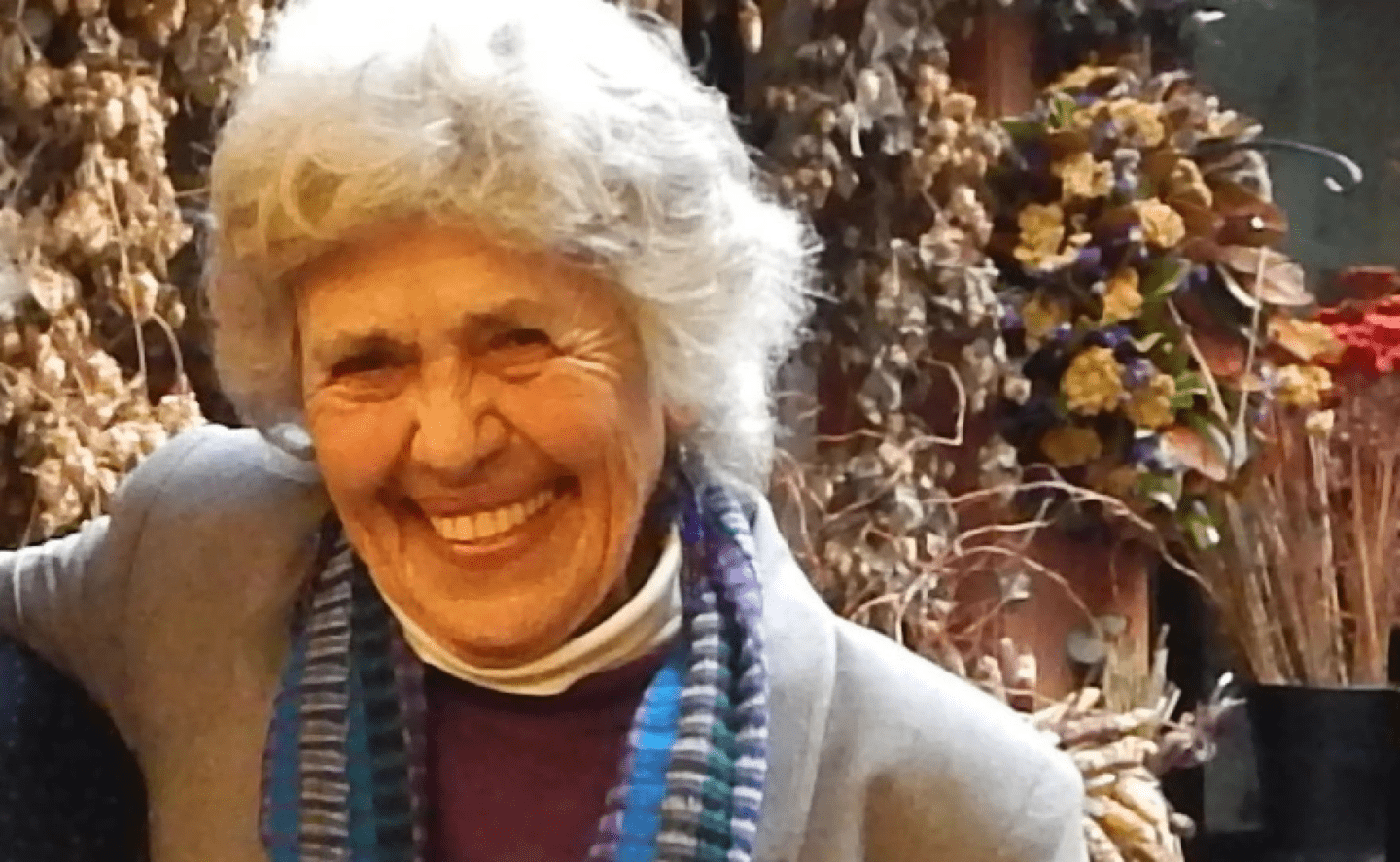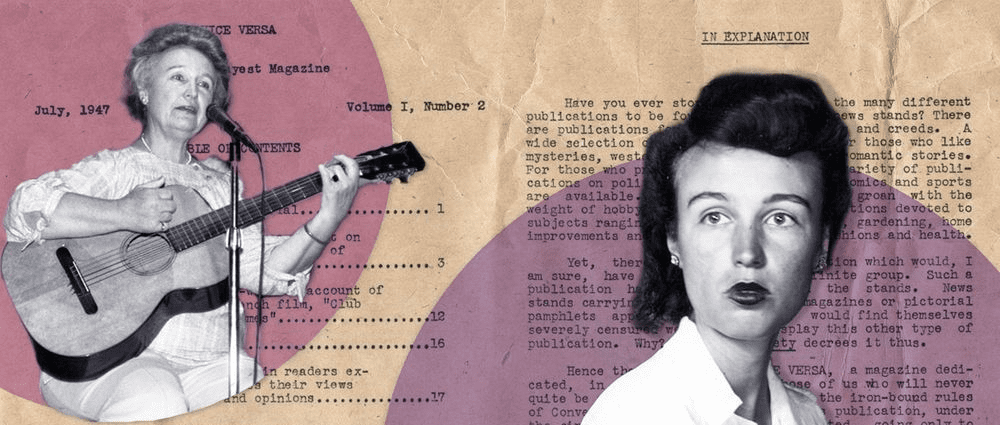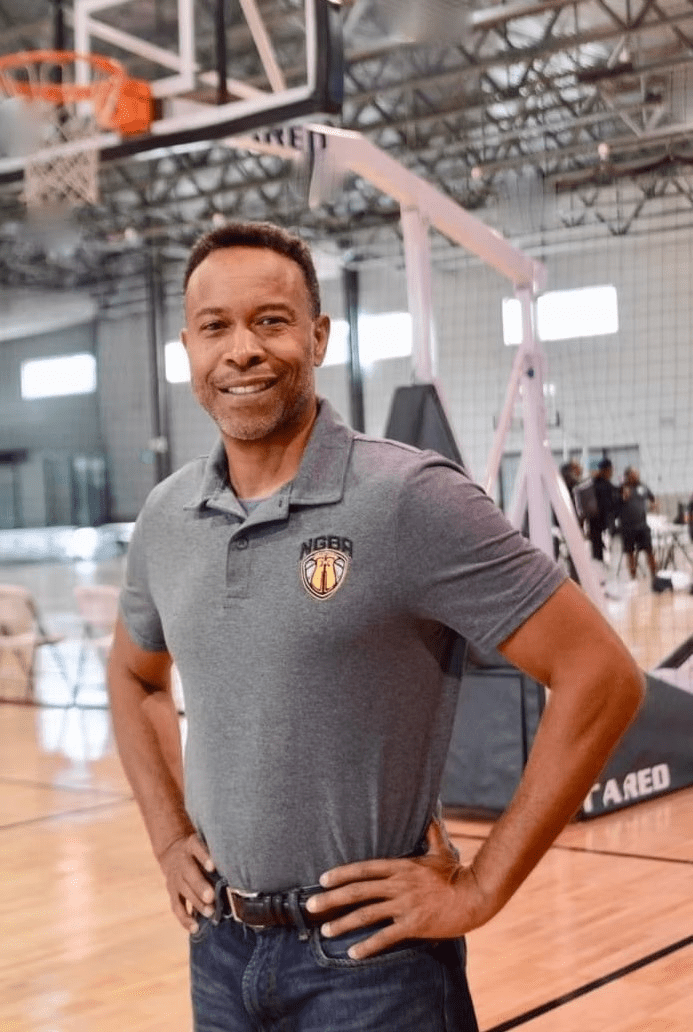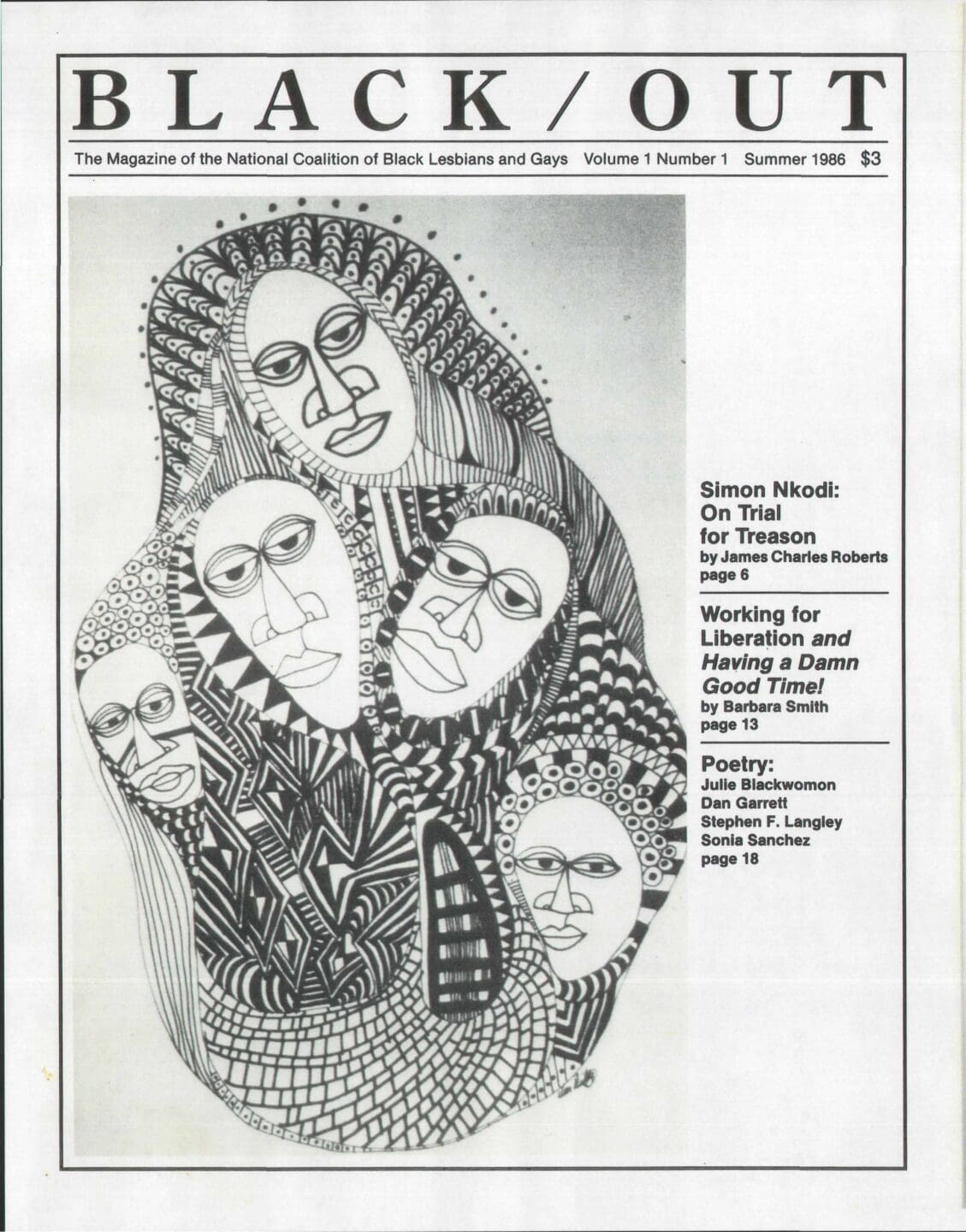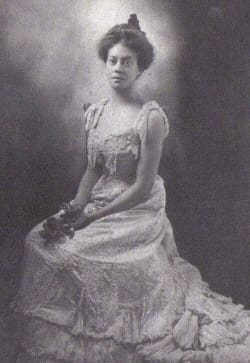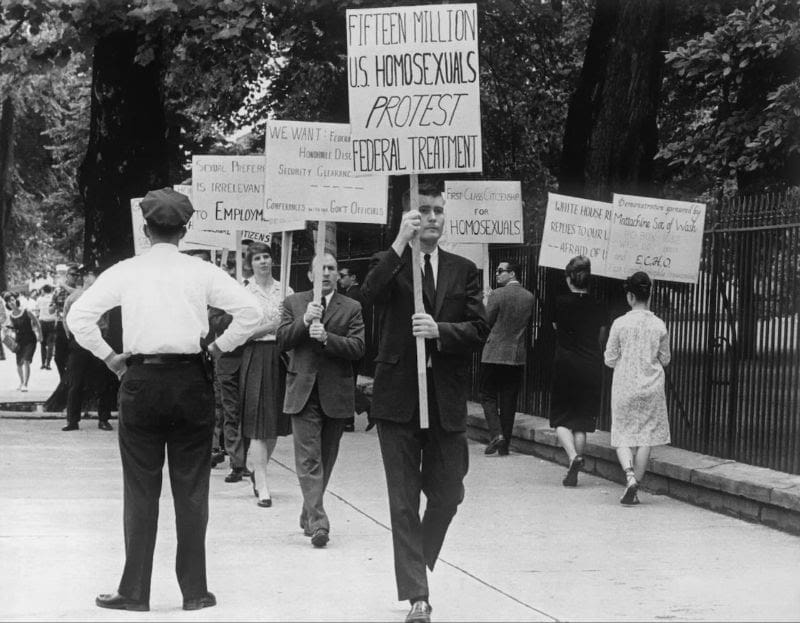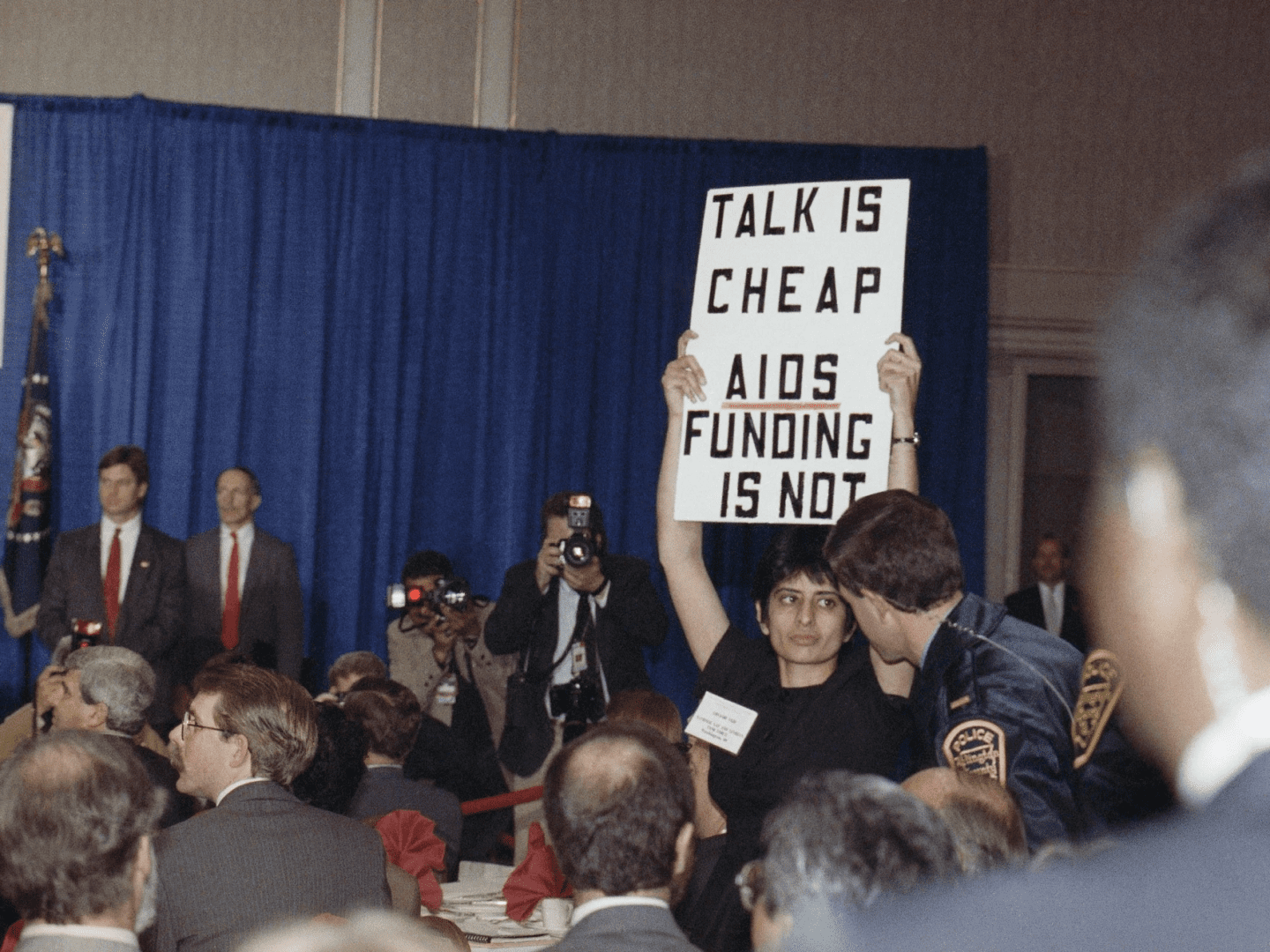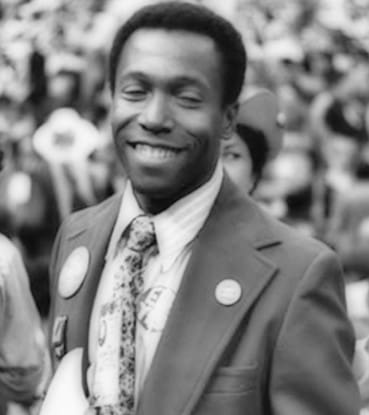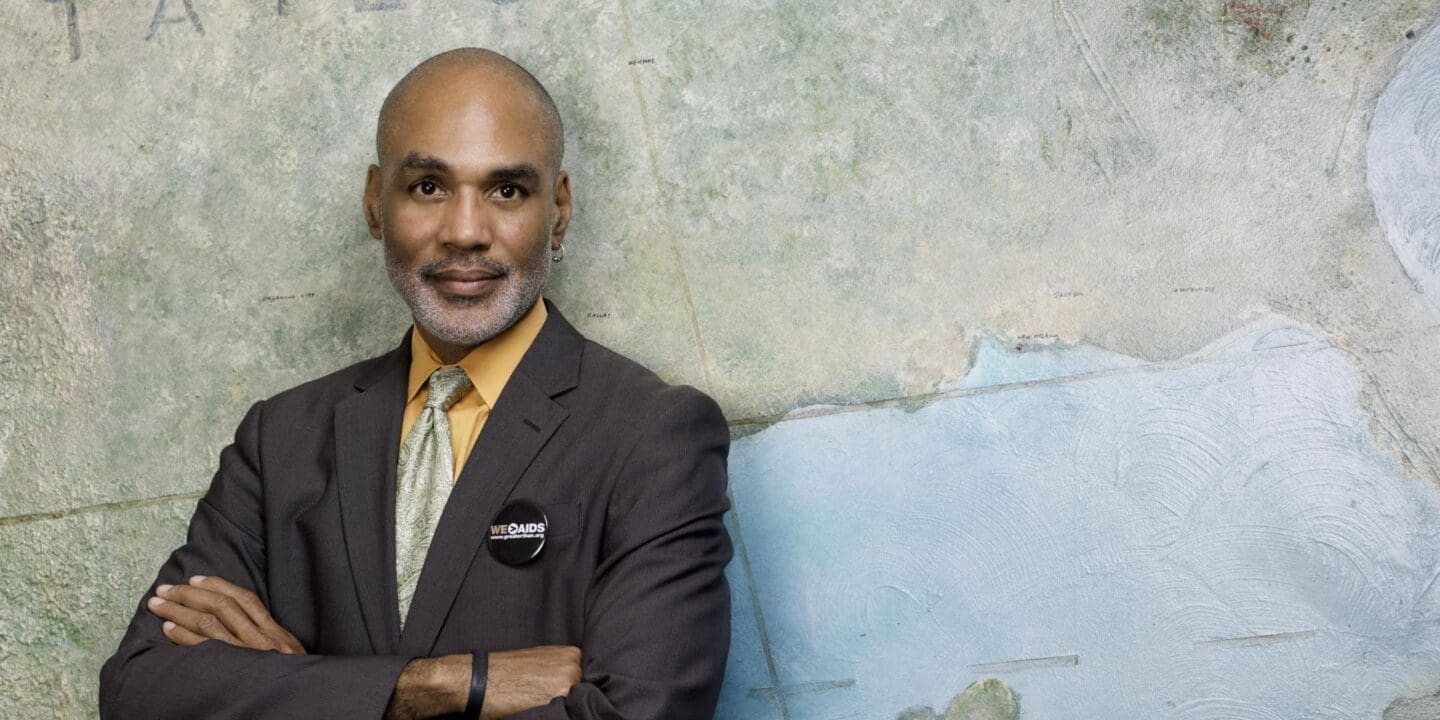Newsletter
May 2025 | For AAPI Heritage Month: The Resilience of LGBTQ+ Japanese Internees
In recognition of this year’s theme for Asian American Pacific Islander (AAPI) Heritage Month–“a legacy of leadership and resilience”–we honor the stories and memories of the LGBTQ+ Japanese-Americans imprisoned by the U.S. government in detention camps during World War II.
It is only recently that scholars and journalists have been able to unearth the stories of queer folks who experienced confinement in what some now refer to as American concentration camps. While contemporary, notable LGBTQ+ AAPI figures like actor George Takei and scientist Roy Wesley have spoken up about their time in the camps as children, we are now learning of the queer teens and adults who were removed from their homes and forced to endure the hardships of these camps.
In 1942, President Franklin Roosevelt ordered the internment of all people of Japanese descent living on the West Coast though none were accused or convicted of any crimes. Those rounded up were imprisoned in ten prison camps scattered throughout the U.S. The camps kept family members together but prisoners ate and bathed communally. This gave young people, especially those who were queer, the opportunity for greater independence and for meeting others they might never have met otherwise.
Jiro Onuma was imprisoned in the Topaz Camp in Utah. His papers, among which are photos of his time in the camp, are held in the archives of the GLBT Historical Society in San Francisco. Historian Tina Takemoto has studied Onuma’s time in the camp and his later life as an openly gay man. Based on photos she cross-referenced from throughout Onuma’s life, she identified one man, named Ronald, who she concluded may have been Onuma’s partner given the affectionate nature of the photos.
While Jiro Onuma’s papers present the most direct evidence of queer presence in the Japanese internment camps, scholars have identified other possible evidence by analyzing what they deem “coded expressions of queerness” present in the historical record. One example is found in the diary of internee Stanley Hayami, who wrote about his inability to spend time alone in the camp without interruptions by other prisoners. “I don’t tell this to anyone,” he wrote, “because they’ll figure I’m a queer (maybe I am).”
Karen Kehoe, a white woman, moved into a camp with her Japanese-American partner stating that she was her half-sister. Once released from the camp, Kehoe wrote a fictional account of her time there, City in the Sun, in which she profiled a teenager who was clearly coded as queer as she described his interactions with other boys in the communal showers.
In concluding her piece on queer Japanese-American detainees, writer Yasmine I. Rayyis writes, “The search for these stories is essential because the erasure of queer history, especially in communities of color, is a longstanding issue tied to the discrimination that these groups faced and continue to face today.”
May 2025 Untold Stories | Connie Panzarino: Groundbreaking Lesbian Disability Activist
Described by a close friend as “a ball of fire,” Connie Panzarino (1947-2001) refused to take no for an answer. Whether the setting was the Massapequa Public Library in her native Long Island, the Hofstra University campus, or NYU, Connie was successful in advocating for greater access and respect for people with disabilities. An art therapist by profession, she led the Boston Self Help Center, an organization by and for people with disabilities, from 1986-1989, and served on the boards of the Boston Center for Independent Living and the Disability Law Center.
“I really don’t lead a calm life,” she told The New York Times in a 1977 profile. “Being a disabled activist, many people don’t like you. … I’m a cripple and I was born this way. I’m supposed to fade out and keep out of everybody’s way.”
Panzarino was born with spinal muscular atrophy, a progressive disease that by adulthood limited her control of movement to the tip of one thumb and her facial muscles. Still, she was able to attend the Michigan Womyn’s Music Festival using a motorized wheelchair and to develop Beechtree, an anti-ableist, intentional living community for queer women in upstate New York.
Her autobiography, The Me in the Mirror (Seal Press, 1994), described her coming to terms with disability in childhood; her long friendship with Vietnam veteran Ron Kovic, author of Born on the Fourth of July; her coming out; and her years of activism.
April 2025 | Year After Year Until You Win: Huge day for the Irish and LGBTQ on Staten Island
By Cahir O’Doherty
SHOW UP, invite the media, inveigle local politicians, stay focused, stay on message and preferably on camera. Talk to everyone who will listen. Then do it all again the next year – and the year after that – until you win.
That’s the message LGBTQ activists like Carol Bullock (Executive Director of the Pride Center of Staten Island) and K.C. Hankins (queer activist and President of the Young Democrats of Richmond County) want the generations who follow them to hear and remember: persistence pays off.
Resistance to LGBTQ participation in the annual community parade – now in its 61 year – was entrenched in the famously conservative borough. In fact it was the very last St. Pat’s parade in America – and possibly the world – to allow an LGBT group to march under their own banner.
But despite the long road to victory – and the bracingly cold 25 degree weather on the day itself – the March 2, 2025 parade was one of joyous celebration from start to finish. Assembling for the traditional pre-parade breakfast, the mixed crowd (the parade lineup increased by a third after making room for all) was in a festive mood at Jody’s Club Forest, the landmark Irish bar on Forest Avenue.
“What you’re seeing is thanks to a long buildup of support from people who have always supported us participating,” explained elated Pride Center Director Bullock at the breakfast. “Today we have reached the pinnacle at last. For me it’s an amazing day, one of the best days I think I’ve ever had here.”
Reflecting on the approach she took to resolve the standoff she had more advice for activists: “I could have gone into these discussions guns blazing, I could have stooped to the level of the people who were opposing us and at times it was tempting. But in a conservative borough finding common ground with people and being able to have productive conversations was critical.”
Bullock continued: “I’m standing on the shoulders of others who started on this road before me. We really built on the community support to be able to make this happen. I think there are times to be passionate and argumentative, but also times to look at the long game and be strategic and have constructive conversations.”
Speaking to the assembled press outside Jody’s, K.C. Hankins, 32–a polished media communicator and the face of an emerging generation of new LGBTQ activists on the island–was also taking a well deserved victory lap.
“We built the narrative in the press and in the community that the parade committee was excluding us year after year and that this was unacceptable,” Hankins explained. “Eventually even the majority of their own organization got sick of their parade committee saying no to us. So what did they do? They replaced the old guard with the new ones who told us we could march.”
“They were sick of the bad press,” Hankins continued. “If we had not organized every single year they would have happily continued to let the parade chairman say no and slam doors in our face. But the politicians stopped marching, the organizations stopped marching, the schools weren’t marching, soon no one was going to the parade. To get their parade back on track they allowed the LGBTQ group to march and that’s how it happened.”
As Hankins spoke, a group of young passersby noticed his rainbow pride suspenders and immediately shouted “Up The Gays!” It was the most local of welcomes, and its fist bumping sincerity delighted the young queer activist. Minutes later, thousands of cheering locals lined the streets as the parade stepped off at 12:30 PM.
In a time of rapidly darkening anti-gay national politics, the success of this on-the- ground activism was a welcome reminder of the power of local organizing.
“We will continue to march every year,” Hankins said. “We will continue to remind people that this battle happened. This is just one crumb in the larger fight for queer rights that we have in this country right now. But it’s an important piece because it promotes visibility and acceptance that shows we belong everywhere we are. But the fight for queer rights is not over. Visibility is everything for us.”
On the day of the parade, the largest community cheers along the route were for the Pride Center marchers as they passed with Irish tricolors and pride flags in hand. A clear reflection of the wider community’s collective decision to move on from the old divisiveness.
“We’ve been working for years to have the Staten Island Pride Center march,” explained Michael McMahon, the borough’s District Attorney. “And as someone who counts himself as an Irish-American it was a painful embarrassment to me. We were the last parade in the world that still excluded a group from marching because of who they were, who they loved and how they identified. Today we have finally put that past us. And to paraphrase the poet Seamus Heaney ‘a longed for tidal wave of justice rose up, and hope and history rhymed’ for a day on Staten Island.”
“Last year we had two St. Pat’s parades, one LGBTQ inclusive and one not,”explained local Pride Center marcher Joanne Gerenser. “This year is the first all-inclusive, all-one parade. It’s Staten Island so it was always going to take longer but really it was always only one or two people standing in the way. But finally the greater good won out.” Fellow marcher Amy Powell agrees: “Finally we can celebrate our Irish heritage as LGBTQ people!”
State Attorney General Tish James saw a lesson for all in the historic event: “We talk about Saint Patrick’s Day and we celebrate Irish culture and the history of the Irish community,” she said. “But what we also need to study and celebrate is freedom, because finding freedom was part of Saint Patrick’s story and a thing he believed in. So today we are marching not only in support of Irish history and culture but also in support of inclusivity and the fact that we are stronger together.”
Former New York Assembly Member Matt Titone, a longtime activist in the fight for an inclusive parade and the borough’s first out gay politician, remembers the long road to equality and participation. “One year we tried having a separate, inclusive parade until the electeds here decided our parade could not be on a public street. We were relegated to a boardwalk by the sea. I’m serious,” he laughs.
The Irish invented the boycott and it came in handy when the parade committee’s attitudes became entrenched. “Finally, we started forcing the elected officials throughout Staten Island to have to start to think twice about marching in the parade and supporting it,”says Titone. “Then we started to get the city to start putting the pressure on. And meanwhile Carol Bullock expanded our reach and has been so successful at fundraising. The amount of money raised went from like $100,000 to I think it’s $2 million now.”
Although Titone is overjoyed by the change of heart in his own community he sees clouds elsewhere. “What really troubles me is that we finally get this win, this huge win here. But it’s in the shadow of an administration that is forcing Google to take down Pride Month from their calendar. They are demanding that in the United States you can be only male or female, not trans, that’s it.”
“I’m 64 now, I’ve been doing advocacy work for well over 30 years,” he continues. “I’ve talked to people who were with me way back when doing the gay rights advocacy thing. We’ve never been more scared. This new era is even darker and we still remember the tough times. We were there when the government was more than happy to allow our friends to suffer and die from AIDS. And you think it couldn’t possibly get worse than those times, but it has.”
Fellow longtime LGBTQ community activist and former chief of staff for Titone, Chris Bauer, casts a funny and suitably Yeatsian cold eye on the years of exclusion. “In the Staten Island parade they have a marching Basset hounds group. They let the dogs march, but not the gays,” he laughs.
“The message I want to send is that you can’t give up. It’s like in the Old Testament, Moses didn’t reach the promised land until almost everybody died out from the original group. We also had to wait for enough people of the exclusionary old guard to pass away and for the younger people to say this isn’t right.”
Bauer continues: “I think it’s important to note that it wasn’t just all the same players that got this done. New people were coming in and taking up the baton and putting in all the hard work. It was so heartening that younger people kept coming in.”
“That’s also what happened with the Ancient Order of Hibernians who ran the parade, by the way. Larry Cummings, the St. Pat’s parade organizer, didn’t have the young people coming into his organization who supported his anti-gay stance, so he wasn’t able to carry on his exclusionary message, because younger people thought it was the wrong message to send.
“No one wanted to touch his baton,” Bauer concluded, erupting at his unintended double entendre. “I didn’t mean it like that, but yeah. Now that I’ve said it, I’ve said what I’ve said, so yeah, there you go.”
Like the Japanese soldiers who refused to believe the war had ended and Japan had lost, for too long the original parade organizers had outstayed their welcome as time passed them by.
On Sunday the parade and the world marched on.
April 2025 Untold Stories | Sally Miller Gearhart 1931‑2021: Lesbian Feminist Author and Activist
The defeat of Proposition 6, known as the Briggs Initiative, a 1978 California referendum that would have banned gay men and lesbians from teaching in public schools, thrust San Francisco City Supervisor Harvey Milk into the limelight as one of the leaders of the successful campaign.
But Milk was not alone in this effort. Sally Miller Gearhart, a San Francisco lesbian feminist professor and activist, worked closely with Milk and others as a leader of the campaign. Together, Gearhart and Milk debated the referendum’s sponsor, State Senator John Briggs, on television. A clip from their debate was featured in the film, The Life and Times of Harvey Milk, as well as an interview with Gearhart reflecting on Milk’s legacy in the wake of his assassination.
Born in Virginia, Gearhart received her PhD from the University of Illinois at Urbana-Champaign and taught in Texas and Kansas before moving to San Francisco in 1970, where she joined the faculty of San Francisco State University until her retirement in 1992. At San Francisco State, she founded one of the country’s first women’s and gender studies programs.
Many lesbian feminists who came of age in the 1970s know Sally Gearhart as the author of The Wanderground (Persephone Press, 1980; Alyson Books, 1984), a speculative fiction novel about a community of hill women who live separately from men.
In her later years, Gearhart founded a women’s land community in Willits, a city in redwood forest country about 140 miles north of San Francisco. She lived there with her “land partner,” Jane Gurko, her dog, Bodhi, and a group of women, many of them lesbians, who wanted to experience life closer to nature and, in many cases, farther from men.
In an effort to celebrate her legacy and make it more visible, filmmaker Deborah Craig produced Sally!, a documentary about Gearhart’s life and work, including her activism in opposing the Briggs Initiative.
Sally! uses a split-screen to highlight a historical omission: Gus Van Sant’s Oscar-winning film Milk (2008), written by Dustin Lance Black, not only erased Gearhart from the debate scene but also handed her words to Sean Penn’s portrayal of Milk. When Gearhart addressed this erasure, she remarked bluntly: “It happens to women all the time.” A teaser/excerpt from the film can be found here.
March 2025 | We Wouldn’t Have Had Stonewall Without the T
“Before the 1960s, almost everything about living openly as a lesbian, gay, bisexual (LGB) person was illegal. The Stonewall Uprising on June 28, 1969 is a milestone in the quest for LGB civil rights and provided momentum for a movement.”
This is the revised introductory sentence of the National Park Service’s website for the Stonewall National Monument. The removal of the T and the Q from LGBTQ by the National Park Service is just one of too many examples of the erasure of transgender and gender non-conforming people from federal policies, regulations and online informational sources under the current administration.
So let’s now correct this egregious omission by consulting the historical record and hearing from eyewitnesses who were actually at and outside of the Stonewall Inn on June 28, 1968–the night of the police raid and the riot.
“So I go running down, following him…. By the time we got down there, the paddy wagon had just pulled up. The queens were just starting to come out and someone had just thrown a high heel. There may have been coins or whatever, but I was there within a couple minutes after the festivities started. I did see high heels flying! The queens — the transgenders or the crossdressers — were yelling something from across the street by the paddy wagon; they were yelling at the cops. We were cheering on the transgenders — the crossdressers — it just sort of snowballed from there.”
Stonewall veteran, Roy McCarthy
“I will never forget that night. Zucky, the mobster who owned the bar, came up to me and told me I should leave, as the cops were on their way.” As Molly was being escorted to her car, she said to her friend, the famous lesbian “drag king” Stormé de Larverie, “I think we should stand up to this!”
“Stormé hit one of the cops, and ended up getting fairly badly beaten and arrested. At first, I felt guilty about encouraging Stormé, but it soon became clear that this was the very beginning of a rebellion that had to happen.”
“I looked at a friend who was a lesbian. We locked eyes (I looked like a girl), and we ran out of the door. A cop grabbed me roughly and told me to get out of there! I did not recognize Stonewall for what it was at the time — that we’d unwittingly lit the fuse for a revolution.
I have never liked to talk about Stonewall nor my transition, I am a very private person. This is the first time I am truly celebrating, because after 50 years it’s about time I shared what we went through.”
Transgender Stonewall veteran, Nance
“Then the cops brought out a tall, gaudily dressed man in women’s clothing wearing a wild flowered headdress of some kind, a person who in those days would have been referred to as a transvestite or a drag queen. It was obvious she was a popular figure at the Stonewall, as cheers went up and she called out the friends in the crowd. One of the cops jabbed her in the back with his nightstick, and she turned around and said something to the cop that I couldn’t hear over the crowd noise. The cop grabbed her roughly and she resisted. He yelled for help from another cop, and the two of them pushed her violently into the back of the Paddy wagon, as she yelled at them loudly.
That did it. The crowd reacted with fury. People started picking up cobblestones from a pile on the sidewalk and hurling them at the Paddy wagon and the front of the Stonewall.”
Reporter, Lucian K. Truscott IV
In response to the erasure of trans and gender non-conforming people from the Stonewall Historical Monument site, Lucian Truscott adds:
“Donald Trump believes that he can erase black history and gay history and the history of slavery and the history of other oppressed people by issuing executive orders. He can’t. That history is not just commemorated by statues in Sheridan Square Park and plaques on the outside of the Stonewall Inn. It is burned into the experiences and memories of the unnamed people shown in the photograph taken by Village Voice photographer Fred W. McDarrah outside the Stonewall on Saturday night, the 28th of June, 1969, and in the lives of those who put their bodies in the streets during the Stonewall uprising such as my friend Jim Fouratt, and Sylvia Rivera, and yes, Marsha P. Johnson.”
March 2025 Untold Stories | Edythe Eyde Created the First Known Lesbian Periodical in North America
Edythe Eyde wrote under the pen name, Lisa Ben, an anagram of “lesbian.” This name was actually her second choice, created only after an editor rejected her first choice, Ima Spinster.
According to an article published in Smithsonian magazine, in 1947 Eyde created and distributed Vice Versa, the first known U.S. lesbian periodical while working as a secretarial assistant at RKO Pictures in Los Angeles. Subtitled “America’s Gayest Magazine,” its name was a play on words at a time when homosexuality was considered to be a vice by mainstream society. Vice Versa declared itself and its lesbian audience to be the opposite of vice.
In the days before photocopy machines, Eyde used carbon paper to make copies of Vice Versa on her typewriter, producing 12 copies of each of its nine issues. The magazine, which included no photos or bylines, contained reviews of films, plays, and books, as well as some reader commentary. Articles included information about time-saving devices, like frozen meals, and other ideas to help women live independent of men.
In the magazine’s inaugural issue, Eyde wrote that Vice Versa was, “a magazine dedicated, in all seriousness, to those of us who will never quite be able to adapt ourselves to the iron-bound rules of convention.”
The magazine ceased publication a year later when Eyde lost her job at RKO and a friend warned that sending Vice Versa through the mail would violate the law that forbid mailing “obscene, lewd or lascivious materials.” It would be another ten years before the next lesbian periodical, The Ladder, emerged, with Eyde contributing as a writer.
In addition to her writing and editing, Eyde also performed song parodies in the 1950s, re-working songs like “I’m Gonna Sit Right Down and Write Myself a Letter” to “I’m Gonna Sit Right Down and Write My Butch a Letter.” The Daughters of Bilitis recorded a single of Eyde singing and sold it as a fundraiser, calling her “the first gay folk singer.”
Edythe Eyde died in 2015 at the age of 94. The Association of LGBTQ+ Journalists honored her by naming the Lisa Ben Award for Achievement in Features Coverage “designed to honor a journalist whose body of work is distinguished by insight and impact through engaging features on LGBTQ individuals, the LGBTQ community or LGBTQ issues.” Eyde was also named as a 2017 Icon by Equality Forum’s LGBT History Month website.
March 2025 Spotlight | A League of Our Own: The National Gay Basketball Association
For decades, basketball was seen as a space that LGBTQ athletes had to navigate carefully, often hiding parts of themselves to fit in. That began to change in 1990 when Mark Chambers founded the Lambda Basketball League in Los Angeles, providing a safe and affirming space for gay athletes to compete. Recognizing the need for a larger national platform, Chambers went on to establish the National Gay Basketball Association (NGBA) in 2002, a move that would help shape the future of LGBTQ sports.
Over the past two decades, the NGBA has grown into an international movement, welcoming not only LGBTQ players but also allies who believe in the power of inclusive sports.
From Isolation to Inspiration
Mark Chambers’ journey to founding the NGBA was deeply personal. As a high school basketball player in the early 1980s, he struggled with the isolation that many LGBTQ athletes faced. Feeling like there was no space for him in the sport he loved, he quit his team during his senior year, a decision that would later fuel his passion to create something better for future generations.
His first encounter with LGBTQ sports came unexpectedly in San Francisco in 1986, when he stumbled upon the Gay Games. Unaware that an entire network of gay athletes existed, Chambers realized the potential for a structured, inclusive basketball community. That realization eventually led to the creation of Lambda Basketball in Los Angeles, a grassroots effort that provided a consistent, welcoming space for gay players.
From Local League to National Stage
While Lambda Basketball was thriving locally, Chambers saw a need for something bigger: a national league that could connect LGBTQ players across cities. In 2002, he founded the NGBA, formalizing an infrastructure for tournaments, team development, and advocacy. He insisted on including “gay” in the name at a time when many LGBTQ sports organizations avoided explicit labeling. “I always felt like there have got to be young people out there who still don’t know what a gay basketball player looks like,” Chambers reflected.
Through his leadership, the NGBA set minimum standards for tournament organization, ensuring fair play, structured schedules, and quality experiences for players. Under his guidance, the league expanded, connecting teams in cities across the U.S. and beyond. Yet, his journey was not without resistance.
Battling Adversity and Breaking Barriers
As the NGBA grew, Chambers encountered pushback not just from the broader sports world, but even from within the LGBTQ sports community. Some tournament organizers were reluctant to adopt a national structure, while others resented his leadership style. He also faced microaggressions and outright hostility, though he did not attribute them to race himself.
Despite these struggles, Chambers persisted, fueled by the letters and messages he received from players whose lives had been changed by the NGBA.
“I never thought I’d be able to go to a place, hold my boyfriend’s hand, and play the game I love without being judged,” one player told him.
That affirmation reinforced his belief in the importance of the work he was doing.
A Legacy That Lives On
Even after retiring as NGBA’s president in 2023, Chambers remains a guiding force in the community. The organization continues to thrive, expanding into women’s basketball and fostering a new generation of LGBTQ athletes. As he prepares for his final major event, organizing the basketball tournament for the 2026 Gay Games in Valencia, Chambers can look back on his legacy with pride.
Thanks to Mark Chambers and the NGBA, that reality has changed. Today, thousands of players across the country, and the world, step onto the court knowing they belong.
Chambers may be stepping away from the day-to-day operations, but his impact is undeniable. The NGBA is more than just a basketball league, it’s a movement, a family, and proof that sports can be a home for everyone.
February 2025 | Remembering the National Coalition of Black Lesbians and Gays (1978‑1990)
The National Coalition of Black Lesbians and Gays (NCBLG) was “the first national organization of LGBT people of African descent in the United States.” Its official motto was “as proud of our gayness as we are of our blackness.”
Organized in 1978 by a group of activists that included A. Billy S. Jones-Hennin, Darlene Garner, and Delores P. Berry, NCBLG’s brochure listed ten goals and objectives for the organization, including “to actively work against racism, sexism, ageism, classism, homophobia and any other forms of discrimination within the Black community and the gay community.
Originally named the National Coalition of Black Gays, the organization added Lesbian to its name in 1984.
NCBLG chapters existed in cities across the U.S., including Philadelphia, New York, Norfolk, Minneapolis, New Orleans, Atlanta, Chicago, Portland, St. Louis, San Francisco, Washington D.C., Boston, and Richmond. Notable members included Audre Lorde, Barbara Smith, Joseph F. Beam, Essex Hemphill, and Achebe Betty Powell.
NCBLG was one of the first organizations to initiate HIV/AIDS prevention efforts in the Black community. In addition, it sponsored two National Third World Lesbian and Gay Conferences and published a news magazine, Black/Out, which provided funding and support for the organization. Black/Out, was edited by renowned writer and poet Joseph F. Beam, who went on to edit In the Life: A Black Gay Anthology in 1986. The magazine
focused on highlighting the erasure of Black people from LGBT spaces, as well as offering discourse on race and sexual identity.
In 1979, NCBLG organized the first of two Third World Conferences, this one held simultaneously with the first March on Washington for Lesbian and Gay rights (October 12 – 14, 1979).
In the late 1980s, several key leaders left the organization, and it finally ceased operations in 1990. As founding member A. Billy S. Jones described, “We just faded away. Some board members refused to acknowledge that it was time to say good-bye but folks just burned out and faded away.”
NCBLG’s efforts, especially its two conferences, spurred more Black LGBT people in the community to organize, leading to, for example, the creation of Howard University’s Lambda Student Alliance, the first openly LGBT organization at an HBCU.
As the first national organization focused on the needs and priorities of the Black LGBTQ+ community, its work lives on in the form of the many groups–including the National Black Justice Coalition, the Center for Black Equity, the Black AIDS Institute–who stand on its shoulders.
Source: Eric Darnell Pritchard, As Proud Of OurGayness As We Are Of Our Blackness, PDF (www.ericdarnellpritchard.com)
February 2025 Untold Stories | Alice Dunbar‑Nelson: Journalist, Poet, Activist
Alice Dunbar Nelson (1875-1935) was a bisexual poet, journalist, and political activist. Among the first generation of African Americans born free in the Southern United States after the end of the Civil War, she was one of the prominent African Americans involved in the artistic flourishing of the Harlem Renaissance. She was also a lifelong educator and activist who fought for women’s suffrage and equality for the Black community.
Dunbar-Nelson was an activist for African Americans’ and women’s rights. In 1914, she co-founded the Equal Suffrage Study Club, and in 1915, she was a field organizer for the Middle Atlantic states for the women’s suffrage movement. In 1924, Dunbar-Nelson campaigned for the passage of the Dyer Anti-Lynching Bill, but the Southern Democratic block in Congress defeated it.
Born to a mother who had been freed from slavery a decade before, Dunbar-Nelson graduated from high school at age 14. She attended Straight College (now Dillard University) and received her teaching certificate in 1892. She later attended Cornell University and the University of Pennsylvania.
In 1895, she published her first book, a collection of stories and poems titled “Violets and Other Tales.” Soon after, she moved to Boston to pursue a literary career, where she wrote for the Boston Monthly Review. By 1899, she had relocated to Harlem and published her second book, “The Goodness of St. Rocque and Others,” about Creole life, which launched her career-long exploration and critique of American culture and racial oppression. She wrote novels, stories, essays, poems, and reviews.
Wendy Rouse, a historian, wrote in an article published on the website of the Women’s Suffrage Centennial Commission that Dunbar-Nelson described in her diary, “a thriving lesbian and bisexual subculture among Black suffragists and clubwomen.” In those entries, Dunbar-Nelson wrote about the romantic and sexual experiences she had with men and women both while she was single and while she was married.
Her romantic relationships included three marriages to men as well as relationships with women, including Edwina Kruse, a high school principal, and Fay Jackson Robinson, a journalist and activist.
Fifty years after her death, W.W. Norton & Co. published her journal, “Give Us Each Day.” It is one of only two African-American women’s journals published in the 20th century.
In 2021, Alice Dunbar-Nelson was celebrated as one of Equality Forum’s LGBT History Month’s Icons.
January 2025 | Speaking Truth to Power: Milestones of Queer Activism
As we head into a new era in Washington, D.C. with much trepidation and a renewed determination to fight for justice, we are reminded of important milestone events when queer people came together to speak truth to power. We stand on the shoulders of those ancestors and current activists who pushed forward in days past and today, demanding the freedom to live their authentic lives.
First picket by members of the Washington Mattachine organization in front of the White House on April 17, 1965, protesting the unjust treatment of gay and lesbian people by the federal government. Frank Kameny, a federal employee who was terminated in 1957 as part of the Lavender Scare, is carrying a sign immediately to the right of the police officer.
Urvashi Vaid, then-executive director of the National Gay and Lesbian Task Force, protests at then-President George H.W. Bush’s address on AIDS in March 1990 in Arlington, Virginia.
Former Army Lieutenant Dan Choi (4th L) and former Marine Corporal Evelyn Thomas (5th L), and others handcuff themselves to the White House fence in Washington to protest that President Obama keep his promise to repeal the “Don’t Ask, Don’t Tell” policy for gays in the military.
Transgender activists with the Gender Liberation Movement in the Cannon House Office Building on December 5, 2024 protesting the bathroom ban instituted by House Speaker Mike Johnson, which blocks any individual from using a bathroom that does not align with their gender identity. In a statement, group co-founder Raquel Willis said the activists were demonstrating because “everyone deserves to use the restroom without fear of discrimination or violence. Trans folks are no different.”
“We can’t transform bigotry and hate with inaction,” she added. “We must confront it head-on.”
January 2025 Untold Stories | Mel Boozer: LGBTQ and AIDS Activist
Melvin (Mel) Boozer (1945-1987) served as the first Black president of the D.C. Gay Activists Alliance (GAA), Washington director of the National Gay & Lesbian Task Force, and co-chair/co-founder of the Langston Hughes-Eleanor Roosevelt Democratic Club, a group he helped found in 1982 to give greater voice to LGBTQ+ African Americans. Photo credit: Pat McArron
Under his leadership and in collaboration with Frank Kameny, the GAA secured passage of the D.C. Sexual Assault Reform Act, which decriminalized sodomy and struck down other anti-gay laws. The GAA also sued the Washington Metropolitan Area Transit Authority and won the right to display Metrobus posters announcing, “Someone in Your Life is Gay.”
At the 1980 convention, Boozer’s name was placed in nomination for vice president. In a moving address, he called on delegates to help fight discrimination against African Americans and LGBTQ+ people. He said, “I know what it means to be called a nigger, and I know what it means to be called a faggot, and I can sum up the difference in one word: none.”
In an interview with Blacklight Online in 1980, Boozer said:
It is not good to be Black, Gay and closeted. That person becomes a zombie, not part of the living. As long as we are hiding, we give up energy, integrity and strength. It appears to be the second-best solution. I feel it is imperative to be visibly Gay….I say..to Black Gays. How do you know you were not born for just such a time as this? It’s a disaster to pretend to be straight. Straightness is responsible for the aggression that will destroy nature and human kindness.
Boozer won scholarships that enabled him to attend Dartmouth College, where he graduated in 1967 with a degree in sociology. He spent the next three years in Brazil as a community development worker with the Peace Corps. He then pursued advanced studies at Oberlin College and earned a master’s degree in sociology at Yale University.
After returning to Washington in the mid-1970s, he became an assistant professor at the University of Maryland.
Boozer died of an AIDS-related illness in March 1987 at the age of 41 in Washington, D.C. He is featured in a panel of the AIDS Memorial Quilt. The Washington Post published his obituary.In June 2019, Boozer was one of the fifty inaugural American “pioneers, trailblazers, and heroes” inducted on the National LGBTQ Wall of Honor within the Stonewall National Monument (SNM) in New York City’s Stonewall Inn.
December 2024 | For World AIDS Day: Phill Wilson and the Black AIDS Institute
“We knew two things:
(1) Black People were dying, and
(2) Nobody could save us, but us.”
– Phill Wilson, founder, Black AIDS Institute, in a 2018 letter announcing his retirement and reflecting back on the Institute’s founding.
In the 1980s and into the 1990s, with only a few exceptions, the faces of the AIDS epidemic were those of white gay men. But, as with so many other things, the picture was incomplete.
Phill Wilson was living with HIV/AIDS and had been working at a number of AIDS-related organizations and agencies, when in 1999, he founded the Black AIDS Institute in Los Angeles to call attention to the true nature of the epidemic and to work to ensure that the new antiviral medications would be accessible to Black people living with HIV/AIDS.
In an interview with NPR in 2021, Wilson provided a true and complete picture of the AIDS/HIV epidemic. “…from the earliest days, … Black people represented 25% of the new cases in the U.S. Even as early as then, Black women represented over 50% of women diagnosed with HIV and AIDS. So Black people were always disproportionately impacted, over-represented in disease, underrepresented in advocacy, [and] underrepresented in resources dedicated to fighting the disease.”
The Black AIDS Institute is the only national HIV/AIDS think tank in the US focused exclusively on Black people. The Institute disseminates information, interprets and makes recommendations on public and private sector HIV policies, conducts training, provides direct clinical care, and provides advocacy mobilization from an unapologetically Black point of view. The Institute broadened the fight against AIDS from one solely focused on biomedical solutions to incorporating, what are known as, the social determinants of health–the contexts (e.g., poverty, substandard housing, lack of access to health care, mass incarceration) in which Black people live as a result of centuries of racism imposed on them.
During the early years of the Institute, Wilson and his staff worked to get accurate information about AIDS to the Black community. These efforts led to a five-year CDC-funded ‘Act Against AIDS’ campaign that resulted in 14 Black organizations being awarded grants to hire an AIDS coordinator to expand their work.”We were able to literally turn every Black media organization in America into an HIV/AIDS information delivery platform,” he told NPR.
After 20 years leading the Black AIDS Institute, Wilson retired in 2018. Today in 2024, the organization, as well as his legacy, endure. Learn more about the current work of the Black AIDS Institute here.
As Wilson told NPR, “[We] survived the Middle Passage together. We survived three hundred years of slavery together. When we turn towards each other, we survive, and when we allow folks to tear us apart, we actually suffer tremendously.”
Photo credit: Black AIDS Institute
November 2024 | 50 Years of Les Ballets Trockadero de Monte Carlo‑and Counting!
“You know, the people ask us if we’re political and stuff like that. And I say, well, yes, of course we’re political. The minute you put a guy in a dress or, you know, a girl in trousers, that means you’re looking at something unusual in an unusual manner that you might not look at it a different way.” – Tory Dobrin, Artistic Director
Founded in 1974, Les Ballets Trockadero de Monte Carlo is a company of all male professionally trained dancers performing ballet and modern dance comedy, incorporating and exaggerating the foibles, accidents, and incongruities of dance.
Since its early years, the company has toured widely–across the US, even in small towns, and in 43 countries around the world. In addition to its impressive roster of performances, the Trocks, as they are known, run an extensive educational program that includes workshops, master classes, talkbacks, and even makeup seminars. They also hold movement classes at LGBTQ+ organizations in New York. The company has been featured in television show episodes, including one titled, “Ballerina Boys,” for PBS American Masters (2021).
The Trocks evolved out of the experimental theater scene that blossomed in 1960s-70s New York that often included performers in drag. Its four original dancers broke away from a company known as Gloxinia Trockadero and formed Les Ballets Trockadero de Monte Carlo, holding its first performance in a loft space that was the home of a gay male discussion group.
When the company’s new agent–hired in 1979–urged them to professionalize its roster of amateur dancers, it transformed into a troupe of trained ballet dancers, all gay men, and hired a Ballet Mistress, Artistic Director, and Road Manager. A year later, Tory Dobrin was hired as a dancer after being persuaded to audition by a friend. He later became the road manager and in the mid-1990s, the Artistic Director.
Dobrin explains that, unlike club drag, the Trocks’ male ballet dancers are not trying to convince their audiences that they are female, but are instead inhabiting the characteristics and attributes of “larger than life” female characters, such as Maria Callas or Camille.
“We never wanted to fool the audience that we were women. We danced as male characters in these costumes, doing these ballet steps in drag for comedic effects, and that’s a huge difference from what you see, like in RuPaul’s Drag Race.” Female impersonation “is not what we do. We’re doing ballet impersonation and ballerina impersonation…”
“What we do is theater drag in our own way just like in Japan they have kabuki…,” he adds.
The company’s name is a tribute to a former NY drag club, The Trockadero, as well as a tribute to the Paris-based Ballets Russe de Monte Carlo, which was founded in the 1930s. In that company, which was unable to hire Russian ballet dancers after the Revolution, European dancers were known by fake Russian-sounding names to give the public the impression that the company’s reputation was on a par with the original Ballet Russe.
Giving this bit of ballet history its own satirical tribute, the Trocks’ dancers are also known by Russian-sounding names, but with a comedic twist. Included in the company are dancers named Olga Chicaboomskaya, Tamara Boom Dieva, and Natasha Notgoodenough. When he was dancing with the company, Tory Dobrin became the English ballerina, Margaret Lowandoctane.
During its 50th anniversary celebration year, which ends in December, the Trocks performed a retrospective series of programs reaching back to honor their long, distinguished history. The company’s anniversary celebration will conclude in December with a performance of a new Balanchine-inspired work, “Symphony,” choreographed by Durante Verzola at New York’s Joyce Theater. Performances will run from December 17, 2024 – January 5, 2025.

